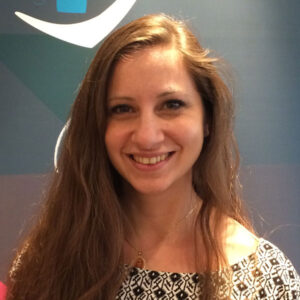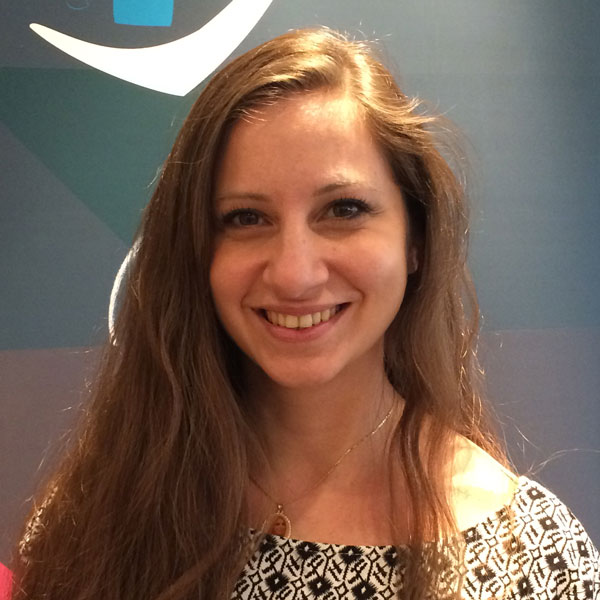
In July 2016, Lebanese NGO ABAAD–Resource Center for Gender Equality and Equimundo launched Programme Ra in Beirut with support from the Womanity Foundation’s first-ever Womanity Award. The program, adapted from Equimundo’s flagship Program H, encourages men and boys to challenge gender-based stereotypes, question traditional ideas of manhood, and contribute to ending all forms of gender-based violence in Lebanon.
Tala Noweisser is a School Counselor for Grades 5-12 at the Wellspring Learning Community School in Beirut. Programme Ra will be implemented in this school for the first time beginning in October 2016. In the following interview, Tala speaks with Equimundo about her work, her observations of gender norms among Lebanese youth, and the forthcoming implementation of Programme Ra in her school.
Tala’s interview is the first in a series of three in-depth interviews that Equimundo is publishing this month with champions of Programme Ra in Lebanon.
What is your role as a School Counselor at Wellspring Learning Community school?
I’m there to cater to students’ and parents’ needs. I go to classrooms and observe class dynamics to see what we need to address, such as academic difficulties and social matters. I also collaborate with teachers to integrate their observations and feedback on how students are doing across different subjects, because they might do well in some but be absent or struggling in others. I meet on a regular basis with every single student and observe them during recess to see how they are doing throughout the day. If there is a concern, I contact parents to let them know we are noticing an issue and to ask if there are problems at home, in order to better understand where the student is coming from. We also meet with parents to share feedback and get background information.
What are the challenges men and boys are facing in Beirut?
There are challenges for men and boys to express themselves freely. They do express themselves, but I’m not sure if it is the way they really want to portray themselves. I believe that some of the students, especially at Wellspring Learning Community, would like to be heard or perceived in a different way, but they probably only do it in private rather than in public. In the classroom, if we asked boys to express their anger, they would do so violently. They wouldn’t do it verbally because that would necessitate expressing how they are feeling. This is the norm we witness at school. These norms hinder communication and don’t help boys reach their goals. We can easily see that they are angry, but they cannot convey their message about what they want to change. They just show their anger without verbally communicating it.
Why is working with men and boys important to you?
I believe in raising awareness and normalizing the reality that we all have feelings. We experience various emotions at different times depending on the experiences we each go through. It is important to normalize expressing oneself in order to make it acceptable. We want men and boys to stop suppressing emotions, bottling them up inside. This would complement recent movements to empower women and girls to express themselves and their opinions.
What is the impact you see when boys suppress their emotions?
You start seeing boys exaggerating the things that they do and imposing themselves even more. You see boys get involved in bullying, projecting themselves on others, and blaming people for what they are experiencing at the moment. Many have anger deep inside. Some choose not to show it and become passive aggressive, and other times you see reactions that don’t make sense until you talk it out with them. I believe lacking the vocabulary to state what they are feeling has a huge impact on the boys’ behavior. It’s important not only to be aware of different emotions, but also to teach the words to describe feelings. We tend to think we only experience “happy,” “excited,” or “mad,” but there is a whole range of emotions we go through, and boys don’t have the words to express themselves well.
Can you describe your partnership with ABAAD, Equimundo, and the Womanity Foundation to implement Programme Ra in Wellspring?
At Wellspring we have a course called “Service as Action,” where we develop a program with students to serve the community we live in for the whole year. Because Service as Action is an academic requirement, we wanted to have professional people in the field to guide us through different activities and themes, and to give both the students and the staff different perspectives.
Our Service as Action Coordinator connected with Anthony Keedi, the Engaging Men Program Manager at ABAAD, and invited him to visit the school and lead a session on gender for our students in Grade 11, which we found the students really liked. Having a guest speaker has a different impact on the students because the guest offers a new perspective and approach. It shows diversity and enriches the experience. Having this partnership with ABAAD is important and has lots of benefits in terms of how to move forward.
What do you hope that the youth will achieve as a result of participating in Programme Ra?
I hope that they become more confident about the different experiences they go through and that they understand it’s okay to experience these emotions because they are there. There is no harm in expressing yourself: if I have to say what I am feeling, it won’t affect me negatively. It will help the students be more productive. I want them to know that gender roles exist, to understand how to manage the different expectations, and to be able to speak up if there is anything that needs to change so they don’t feel like they have to conform.
Wellspring is very diverse, as we have students coming from totally different cultures and ethnic and religious backgrounds. The huge diversity is very enriching because students get to learn from one another. There are even many different languages spoken at Wellspring. We want to normalize that things are done differently in different cultures and teach how to accept and manage differences and biases by expressing our own opinions and emotions but also respecting those of others. I’m really looking forward to having this project running. I can absolutely see how this will positively impact our students.
Editor’s Note: This interview has been edited for length and clarity.
